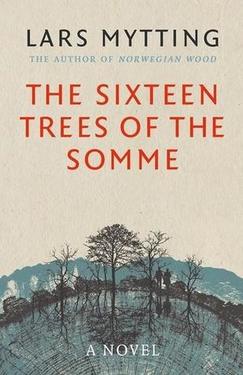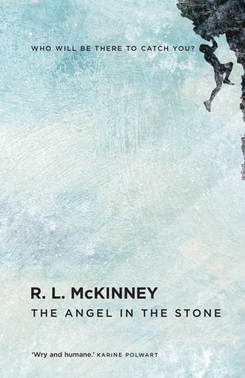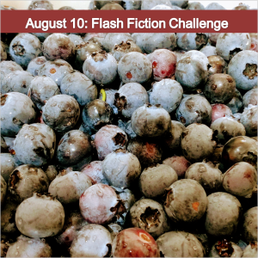How to dovetail the history of two world wars with a passion for beautiful wood in a romantic coming-of-age story that’s also a Nordic family saga with another kind of battle and mystery at its heart? If that sounds your kind book, read on!
Since the death of his parents when he was three years old, Edvard has lived, along with his grandfather, slightly apart from his neighbours on a remote Norwegian farmstead. It might be his connection with nature that separates the young man from his contemporaries, it might be that his grandfather fought for the wrong side in the Second World War or it might be his disconnection from his personal history, with only fragmentary memories of his mother and nothing from his father at all.
When his grandfather dies, Edvard has the unenviable task of arranging his funeral. But it seems that one thing has been already taken care of: a beautiful art-deco coffin made of flame wood was delivered to the undertakers’ many years earlier, presumably the work of the old man’s estranged brother, Einar, arriving some time after his assumed death in action in France. Curious and unsettled, Edvard abandons his sheep and the potato harvest to follow his great uncle’s trail to Shetland and from there to the Somme to discover why his parents ventured tragically into the mine-strewn woodland and how he himself was missing for four days. His investigations are both helped and hindered by the wealthy daughter of Einar’s benefactor, and later enemy, who has some unfinished business of her own. Amid all this, Edvard must weigh his attraction to the unconventional Gwendoline against his loyalty to his childhood sweetheart back on the farm.
There’s a lot going on in this novel and the twists and turns of the narrative occasionally overtaxed my brain. It’s written with style and compassion and, if you enjoy a complex plot, The Sixteen Trees of the Somme will keep you turning the page. Translated by Paul Russell Garret, it’s published in the UK by MacLehose press who provided my review copy.
The Angel in The Stone by RL McKinney
Calum’s family fell apart years ago, first with his father’s death from cancer, then with the climbing accident that took his younger brother, Finn. That was followed by another accident that produced his daughter, Catriona, whom he hasn’t seen since she was fourteen and he returned, bloated and unstable, from a failed marriage in America. Now a quiet life without commitments enables him to maintain his fragile mental health. But it seems he can’t escape his family responsibilities: his mother, already blaming Calum for the death of her favourite son, and suffering from dementia, has moved in with him after a fire in her flat, when his daughter arrives without warning and seemingly on the edge of breakdown herself.
RL McKinney uses the 2014 referendum on Scottish independence as a backdrop on which to explore issues of community, family and interdependence, as well as the decisions we must take to determine our own lives. It’s also about the fluidity of the boundary between religion, spirituality and mental illness: the angel in the title referring to Finn’s belief in his guardian angel that made him reckless, yet his Catholic mother endorsed. Calum certainly wonders (p116):
about the faulty batch of brains his family had been given, terminal glitches hardwired to kick in without warning. Maybe it was some kind of twisted proof that God existed after all, that he was actually just a hack programmer with a sick sense of humour.
With a realistic depiction of living with enduring vulnerability and with beautiful descriptions of Scotland’s contrasting countryside and cultures, The Angel in The Stone reminds me of another recent Sandstone publication, The Making of Mickey Bell. Thanks to them for my review copy.
| When Charli posted an invitation to compose a 99-word story to include music and berries, I thought I’d sit this one out. Not only because I found the combination especially challenging, but I’m especially tight on time, scheduling this post in anticipation of four days away from my desk (one presumably gorging on blueberries on the moors, followed by three days making music myself). |
Another invitation popped through the door. Blow a raspberry! It couldn’t be clearer. Or easier – even babies manage that. Practising before the mirror, he vowed to do his best.
Meandering between the stalls, his mouth watered. Cranachan with oats, whipped cream and whisky. Raspberry sorbet and ice cream. Raspberry-tinged cider and non-alcoholic cordial. The buzz of bees and equally cordial conversation. Summer’s heat tempered by a light breeze.
Checking in beside the stage, the steward looked at him askance. “Where your pipes, laddie?”
The Scottish word for lips? Alas not: every other contestant had bagpipes tucked beneath their arms.
























 RSS Feed
RSS Feed





















